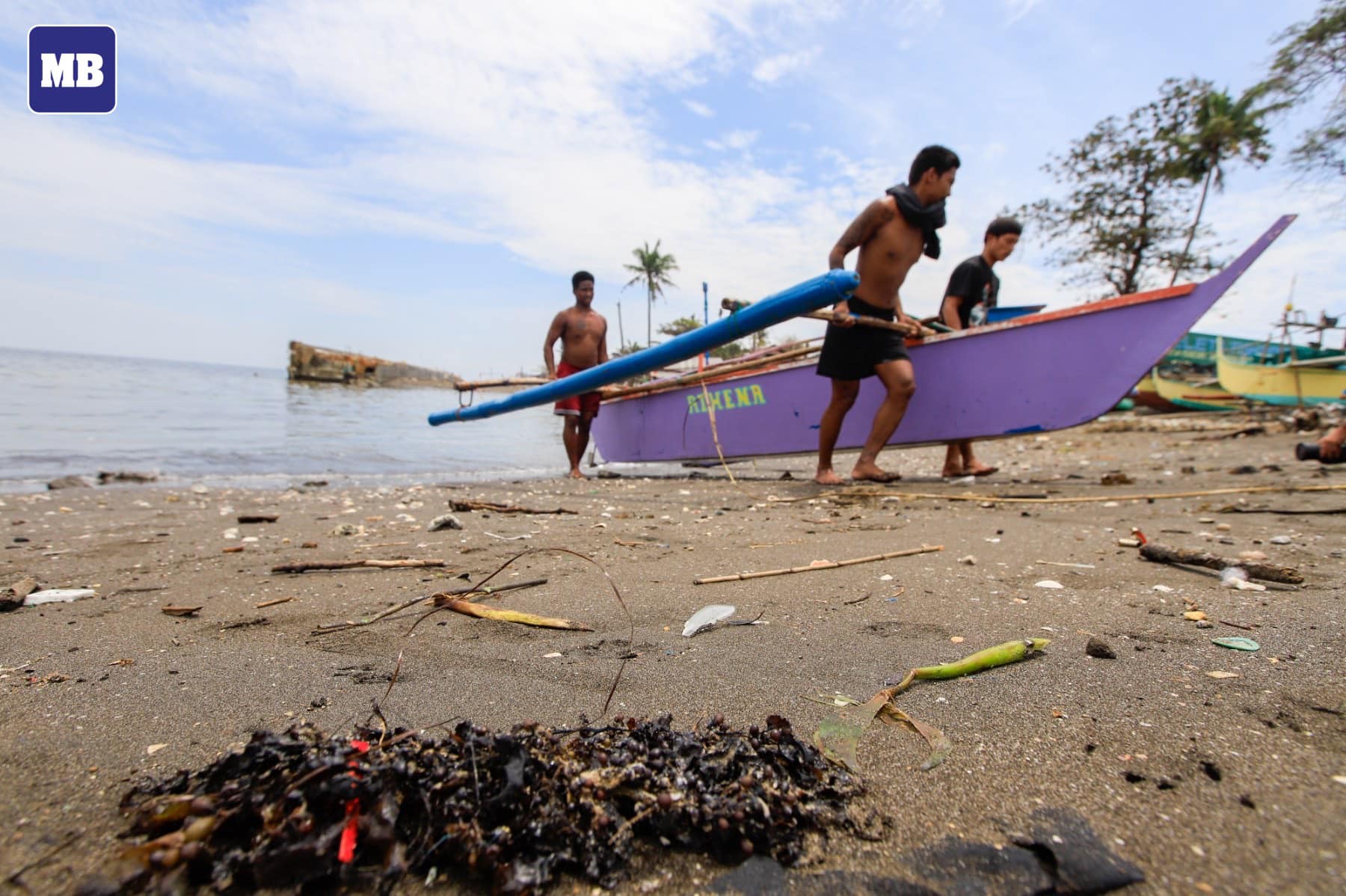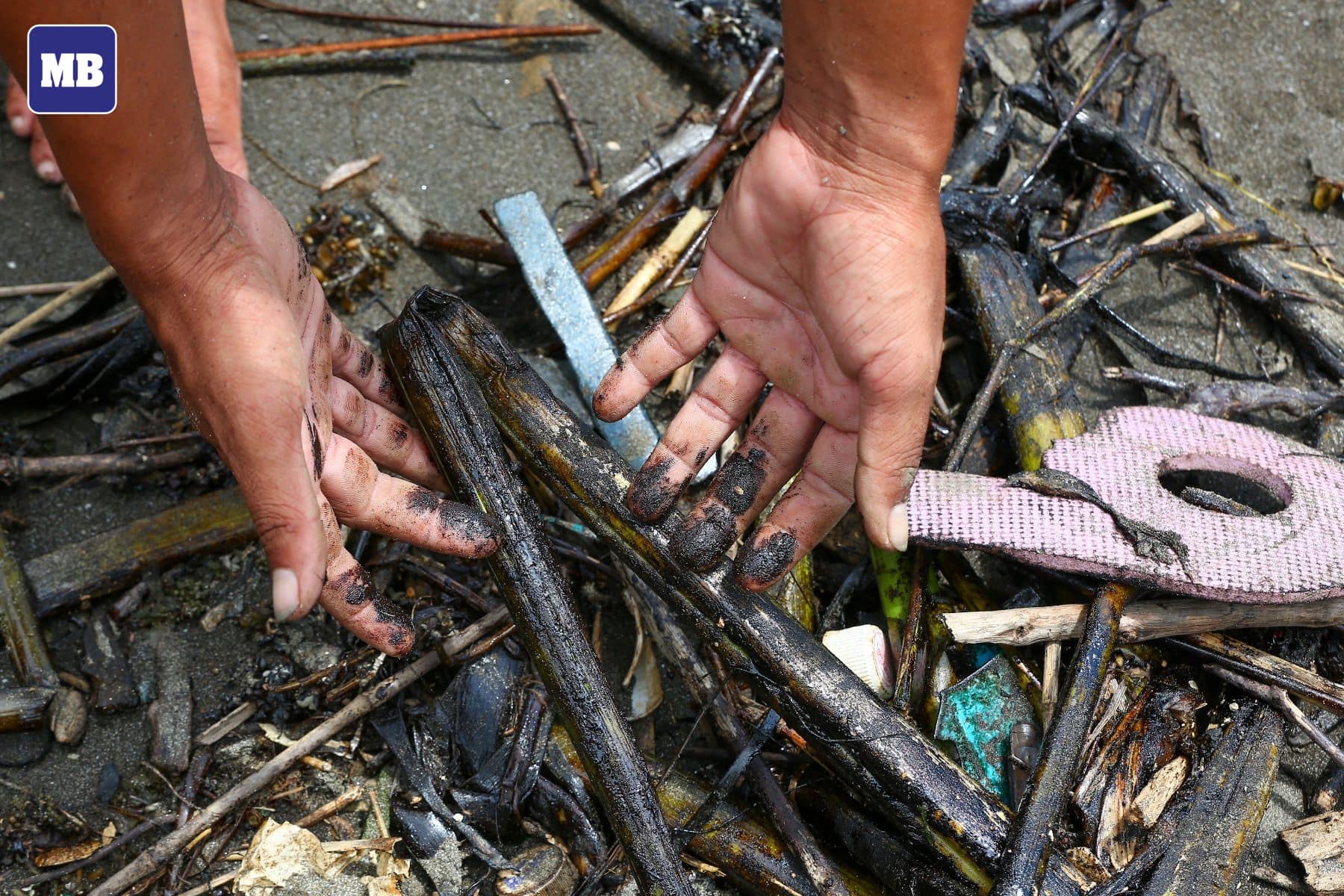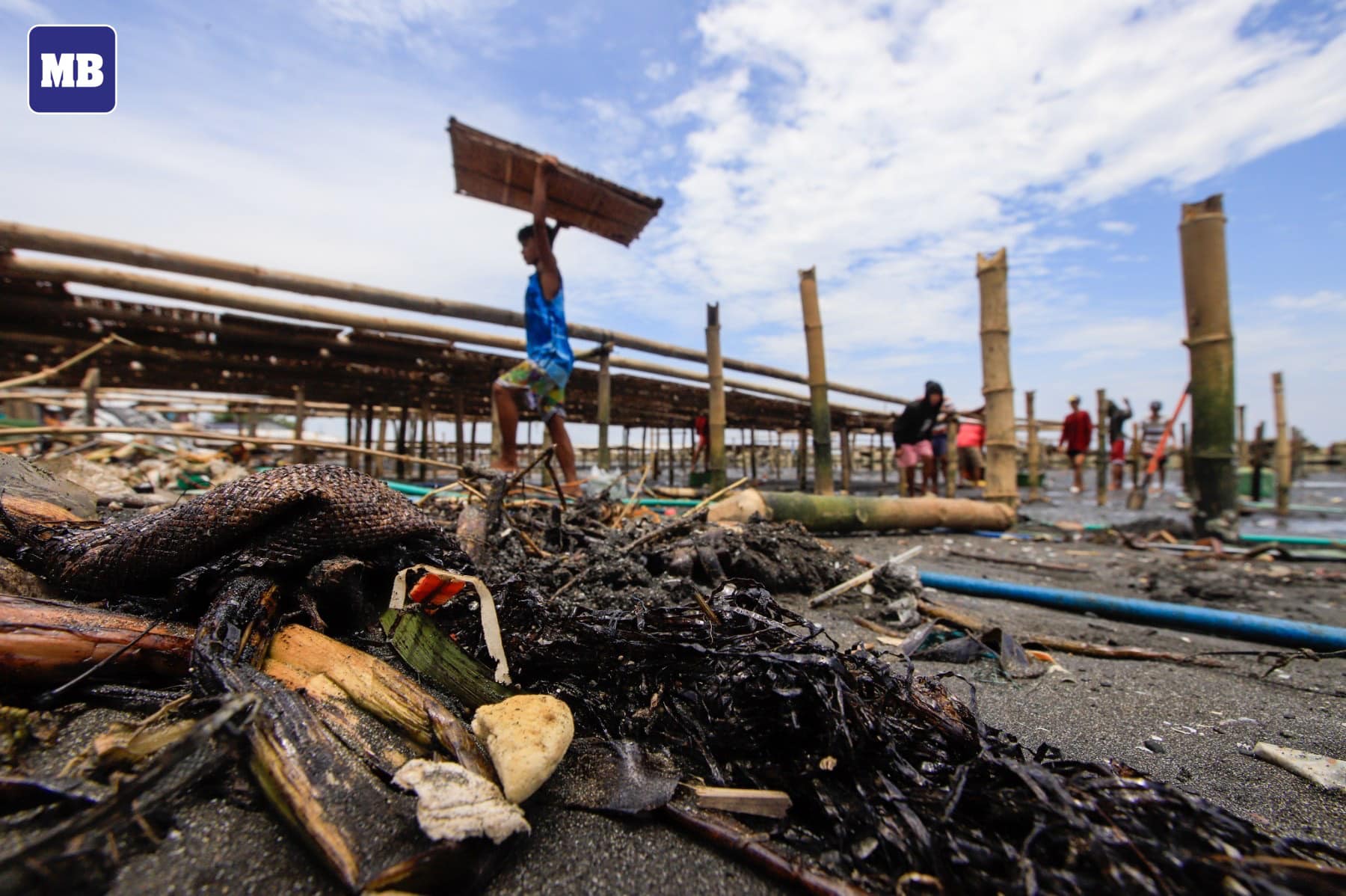Cavite fisherfolk struggling amid southwest monsoon, oil spill

Traces of oil spill are seen on the coast of Long Beach in Noveleta, Cavite, on July 30 (Noel B. Pabalate/MANILA BULLETIN)
CAVITE – Fishermen in the coastal areas of the province are struggling amid the effects of inclement weather brought by the southwest monsoon and the recent oil spill from the sunken tanker MT Terra Nova off Limay, Bataan.
Fisherfolk group Pambansang Lakas ng Kilusang Mamamalakaya ng Pilipinas (PAMALAKAYA) in Cavite told the Manila Bulletin that their daily catch has been dwindling for the past two months, since the onset of the wet season.
The recent oil spill is expected to further harm their already struggling livelihood.
“Lalong magiging delubyo ito dahil mismong 'yung huli mo, hindi makakain at may langis, at hindi mo maibebenta dahil sa mga tumapong kemikal sa dalampasigan (This will become an even greater disaster because the catch itself is contaminated with oil and cannot be eaten or sold due to the chemicals that have spilled onto the shore),” PAMALAKAYA-Cavite Secretary General Aries Soledad told the Manila Bulletin in a phone interview on Tuesday, July 30.

Traces of oil spill are seen on the coast of Long Beach in Noveleta, Cavite, on July 30 (Noel B. Pabalate/MANILA BULLETIN)
Many fishermen living along the coast of Cavite suffered damages from inclement weather during the onslaught of Typhoon Carina, some losing their homes.
Due to difficult times and the lack of a steady income from fishing, some fisherfolk have turned to alternative sources of income to provide for their families.
“Ang pinagkukunan ng hanapbuhay, kung hindi mamamasukan, mangangalakal, 'yung iba ay nagko-construction worker, 'yung iba nangangatulong para lang ma-survive 'yung kanilang pamumuhay (For their livelihood, some work as employees, traders, or construction workers, while others take on domestic jobs just to survive),” Soldedad said.

Traces of oil spill are seen on the coast of Long Beach in Noveleta, Cavite, on July 30 (Noel B. Pabalate/MANILA BULLETIN)
“Ang nais ipanawagan sa gobyerno ay kagyat na economic relief dahil sa bagyong Carina at sana ay magawan ng paraan paano maiaalis ang langis sa dalampasigan ng Cavite (The call to the government is for immediate economic relief due to Typhoon Carina and for finding a solution to remove the oil from the shores of Cavite).”
No fishing ban from BFAR
In a statement on Tuesday, July 30, the Bureau of Fisheries and Aquatic Resources (BFAR) Region 4A said that sensory examinations revealed that fish from Noveleta and Rosario “showed signs of petrochemical tainting, even before visible oil slicks were detected.” On the other hand, fish from Cavite City, Naic, and Tanza were “deemed free of contamination at the time of sampling.”
Fish and shellfish samples are currently undergoing chemical analysis to detect Polycyclic Aromatic Hydrocarbons (PAHs).
BFAR has delegated local government units (LGUs) to decide whether to impose a fishing ban or not.
“While no fishing bans or activity suspensions are currently being imposed in Tanza, Ternate, Naic, Cavite City, Rosario, and Noveleta based on current findings, we advise all residents to remain vigilant and cautious regarding the consumption of fish and seafood from this region,” the statement said.
Affected LGUs take action
Noveleta LGU said it is closely monitoring the oil spill and that Mayor Dino Reyes-Chua is coordinating to provide livelihood assistance to fishermen affected by the oil spill. The municipal government also warned residents to exercise caution when consuming seafood until the results of BFAR’s chemical analysis come out.
Tanza LGU also advised residents to practice caution when consuming seafood from affected areas through an informational video on its official online news Facebook page .
The Municipal Environment and Natural Resources Office (MENRO) of Ternate, meanwhile, built improvised oil spill booms made of plastic bottles and coconut husk, which were deployed at the Ternate Marine Park Core Zone.